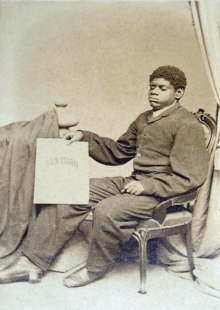The Blues Don’t Change
Origins
Deep out of the Delta of Mississippi, in the 1800s after an influx of migrant workers began to migrate through the south, so did the blues through the great migration. The innovation behind the blues stems from the early plantation and shortly after the emancipation of slavery, sharecroppers and field workers sang to their hearts contents in the effort to remain hopeful during very trying and depressing times.
Characteristics
The blues is genre comprised of many different forms of musical elements including negro spirituals, call, and response, chanting and shouting. The blues aren’t the blues if they aren’t sad. Often holding “tent shows” the blues became popular as doctors and other notable people would stop in to hear what “was happening” in the south. Most blues songs are not filled with the deepest of lyrics, usually accompanied by repetition and sadness. Many blues artists say that through their exposure to the genre it was not always the lyrics that drew them in but the understanding from one black person to the next that times were hard, and that music was really only one form of relief. Though the theme of many blues songs is love and heartbreak many of them also deal with the black struggle and the hopes of making it out of that one day.
Social Implications
Like the many other genres, the blues had a deeper meaning at its beginning stages, then what has now considered “blues influenced” The men and women singing these blues songs were truly in despair, acknowledging their emotional intelligence and making something out of it. When listening to the blues, one can see that it is not an easily duplicated form of music, because one must really be feeling down in the trenches. The blues is a response to the social changes and or consistencies within in the black community.
Performers
producing well qualified and admired artists the blues made its mark on the world, pushing out legends such as B.B. King, Robert Johnson, Ma Rainey, Howlin Wolf and Leadbelly. While researching and I came across the story of Robert Jonson, who is said have sold his soul to the devil at the crossroads in exchange for musical talent. It worked and he gained popularity and is acknowledged as one of the pioneers of blues music.
Commodification/ and future influences
The blues genre has made headway beyond what I am sure most early musicians would think it would make it. changing many of the elements and titling it Rock and Roll the substance of the blues began to shift and morphe into something else. It was not until later that many of the blues artists began being recognized in the rock and roll hall of fame. Which in many instances is very odd seeing that rock and roll is the derivative of blues. The blues began to lose it’s emotional and historical context. Many times now when you go to search blues there is an extensive list of white artists, whose music sounds nothing like the original form of blues. Country Music, Rock, and Roll, Jazz and Hip Hop all have elements of the blues, it is just that only two of those genres understands what it means to be blue.
Conclusionary
In totality, the blues beginning as one of the most uncommon forms of music deriving from slaves and former slaves have continuously and effortlessly remained a trendy and popular style of music, Lead belly says, all negroes have the blues, they just don’t know what it is. Anytime I listen to the blues, I feel like I am instantly going through whatever it is that the artist is singing about, black folks are immutably, universally and eternally blue.


